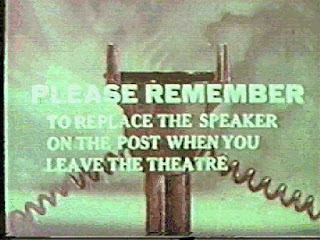This is my third entry in the So Bad It's Good Blogathon hosted by Taking Up Room
In the 70's, a new "hero" appeared on the comic book scene. Marvel Comics presented the ultimate character from another world in the guise of an anthropomorphic duck, a character from a world in which the duck, rather than the ape, was the dominant species of the planet. In the comic book universe, Howard, a citizen of Duckworld, is kidnapped by an evil alien and deposited on Earth.
Howard first came to awareness of the comic book reading audience in an issue of Man-Thing, but eventually got his own comic book. Created by Steve Gerber, the character had many adventures and eventually, George Lucas, creator of Star Wars, latched on to the series and became infatuated with the idea of making a movie of the character.
Although initially it was going to be an animated character (apparently along the same lines as Who Framed Roger Rabbit?, which had live action people interacting with animated characters), this idea was eventually shelved in favor of having animatronic ducks as well as actors in duck suits. (The reason, as stated in a DVD featurette, was that the time limits prevented the animated idea, because the studio wanted a summer release, and animation would have required a couple of years of production).
Howard the Duck was a box-office bomb, in the extreme. It barely made back it's budget. This despite the fact that it had George Lucas' name attached to it. Critics, to a man, panned it. And it wasn't accepted by movie audiences very well at the time, either. Although some audience members loved it, others didn't get the concept. Surely most of it was due to the story line, because Lea Thompson and Jeffrey Jones are great in it. It also features an early performance by Tim Robbins, who was nominated for a Razzie for his performance. But I disagree with the Razzie committee. I think Robbins is a hoot in it.
Like Xanadu, history has been kind to Howard the Duck in the ensuing years. Yes it is considered one of the worst movies of all time, but it has it's share of devotees who really enjoy it.
Howard the Duck (1986):
There is life in the universe beyond that of Earth. But not all life takes on a humanoid appearance. A long long time ago in a galaxy far far away life on a planet evolved not from apes, but from ducks. On Duckworld, Howard (played by Ed Gale, among others, and voiced by Chip Zien) comes home from a long day at work. While relaxing in his recliner he is drawn into a vortex which eventually deposits him in Cleveland.
In Cleveland he ends up meeting Beverly Switzler (Lea Thompson), who takes him in to her apartment after he rescues her from a pair of would-be assailants. Beverly is the lead singer of a group called "Cherry Bomb", along with Ronette (Liz Sagal), K.C. (Holly Robinson) and Cat (Dominique Davalos).
Beverly takes Howard to see a friend she knows who she thinks is a scientist (but who is essentially just a dimwitted lab assistant), Phil Blumburrt (Tim Robbins). Howard is not impressed, especially since Phil seems to be on some sort of comic book wave-length, and tries to get Howard to show some sort of alien super powers he thinks Howard has.
Howard and Beverly part ways in a pique of animosity and Howard tries to find his way in his new world. But of course he is the stranger in a strange land and fails. He eventually ends back up in Beverly's world, where he uses his adeptness at "quack fu" to convince her sleazeball manager, Ginger (Tommy Swerdlow) to give up his rights to her musical career.
Phil shows back up in Howard's life with a real scientist, Dr. Jennings (Jeffrey Jones) who has a line on what happened to Howard and a plan on how to get him back to his own world.
But a mishap in the laboratory ends up drawing in a demon, called the Dark Overlord, which inhabits Dr. Jennings body and proceeds to make an effort to draw in the rest of his compadres to take over the Earth.
Watching Jones transformation from Dr. Jennings into the evil alien is part of what makes this movie so bad it's good. You have to see it to believe it. Howard becomes the unwitting hero as he and Phil and Beverly try to prevent the Dark Overlord from achieving his goals, which may not be as easy as it seems. Especially after the demon deserts Jennings body for his real form.
Well folks, time to get this old Plymouth rolling again. I have an appointment with destiny. Somewhere in Washington, D.C. there is a politician trying to take over the world with some outlandish policies. I think he may really be an alien in disguise. Drive safely folks.
Quiggy

























































